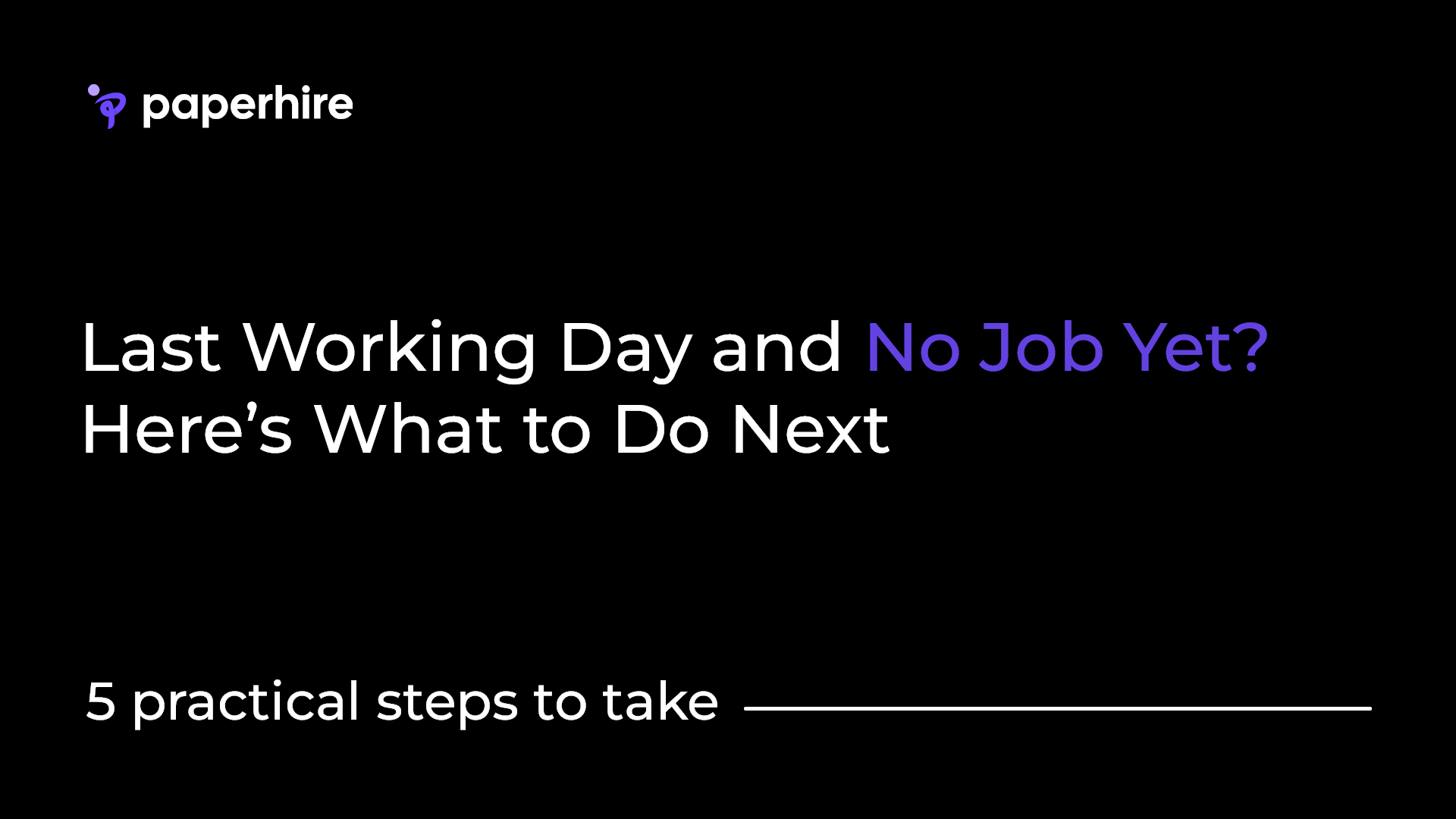Last Working Day and No Job Yet? Here’s What to Do Next
If your last working day is approaching and you haven’t secured a new job yet, it’s completely normal to feel anxious. But don’t worry, this situation is more common than you might think. The key lies in how you respond. While it can feel overwhelming, there are practical, proactive steps you can take to keep your career on track and move forward with confidence.
Why It’s Okay to Face a Job Gap After Resignation
Not landing a new job before your exit isn’t a failure, it can happen due to several reasons: a competitive job market, hiring delays, skill mismatches, or simply poor timing. Instead of panicking, treat this phase as a valuable opportunity for self-assessment, upskilling, and preparation.
In this blog, we’ll walk you through five practical and actionable steps to help you stay focused and ready for your next big opportunity — even if you're currently unemployed.
5 Practical Steps to Take If You’re Jobless on Your Last Working Day
1. Be Calm and Stay Positive
Your mindset shapes your journey. The first and most important step is to remain calm and maintain a positive attitude. When you're under stress, critical thinking and planning become difficult. A clear mind allows you to make informed decisions. Remember, many professionals have faced and successfully navigated this phase — you’re not alone.
2. Prepare Your Financial Plan
The primary cause of stress during unemployment is often financial uncertainty. Take time to evaluate your savings, expenses, and financial commitments. Create a realistic 3-month budget to manage your finances while job hunting. A solid financial plan reduces anxiety and allows you to focus on finding the right job without desperation.
3. Look for Temporary or Freelance Work
Now that you're calmer and thinking clearly, consider exploring short-term opportunities such as freelance projects, contract roles, or part-time jobs. These roles can help you:
Stay financially stable
Maintain your confidence
Keep your skills active
Don’t worry that future employers will view this negatively. In fact, many recruiters see this as a sign of proactivity and resilience - qualities they admire in candidates.
4. Work on Your Weaknesses to Prepare for the Next Role
Be honest with yourself - if you haven’t landed a job yet, there's likely room for improvement. Reflect on your recent interviews. What feedback did you receive? Where did you feel underprepared?
Use this time to:
List your areas of improvement
Take online courses
Practice mock interviews
Strengthen weak points in your resume or skillset
Working on your weaknesses not only builds confidence but also increases your chances of success in upcoming interviews.
5. Be Honest in Every Interview About Your 2–3 Month Journey
If asked about your recent job search, don’t hide the truth. Be transparent and authentic. Talk about:
Why you didn't get job so far
How you've been using your time
What you’ve learned during the job hunt
Hiring managers value candidates who own their journey and show accountability. Your honesty could be the thing that sets you apart from other applicants.
Remember: You Haven’t Done Anything Wrong
You’re not a failure. You’re in transition. You haven’t committed a crime - you’ve simply taken a professional risk, which many successful people have done at some point in their careers.
Conclusion
Facing your last working day without a new job can feel intimidating, but it’s also a chance to reflect, reset, and rebuild. By staying positive, planning your finances, pursuing freelance work, improving your skillset, and being honest in interviews, you’re setting yourself up for long-term success.
Use this time wisely - and your next opportunity could be your best one yet.
